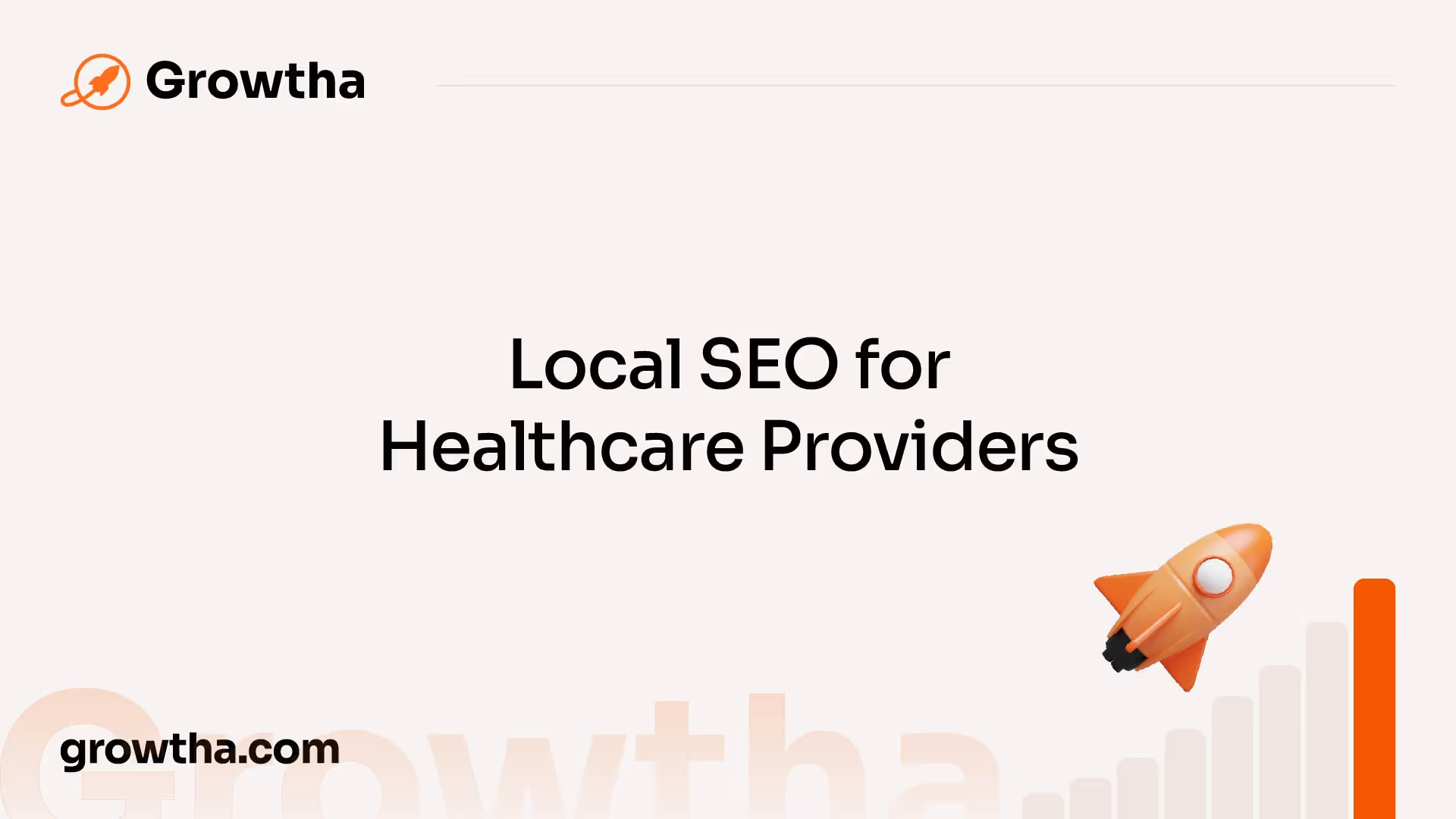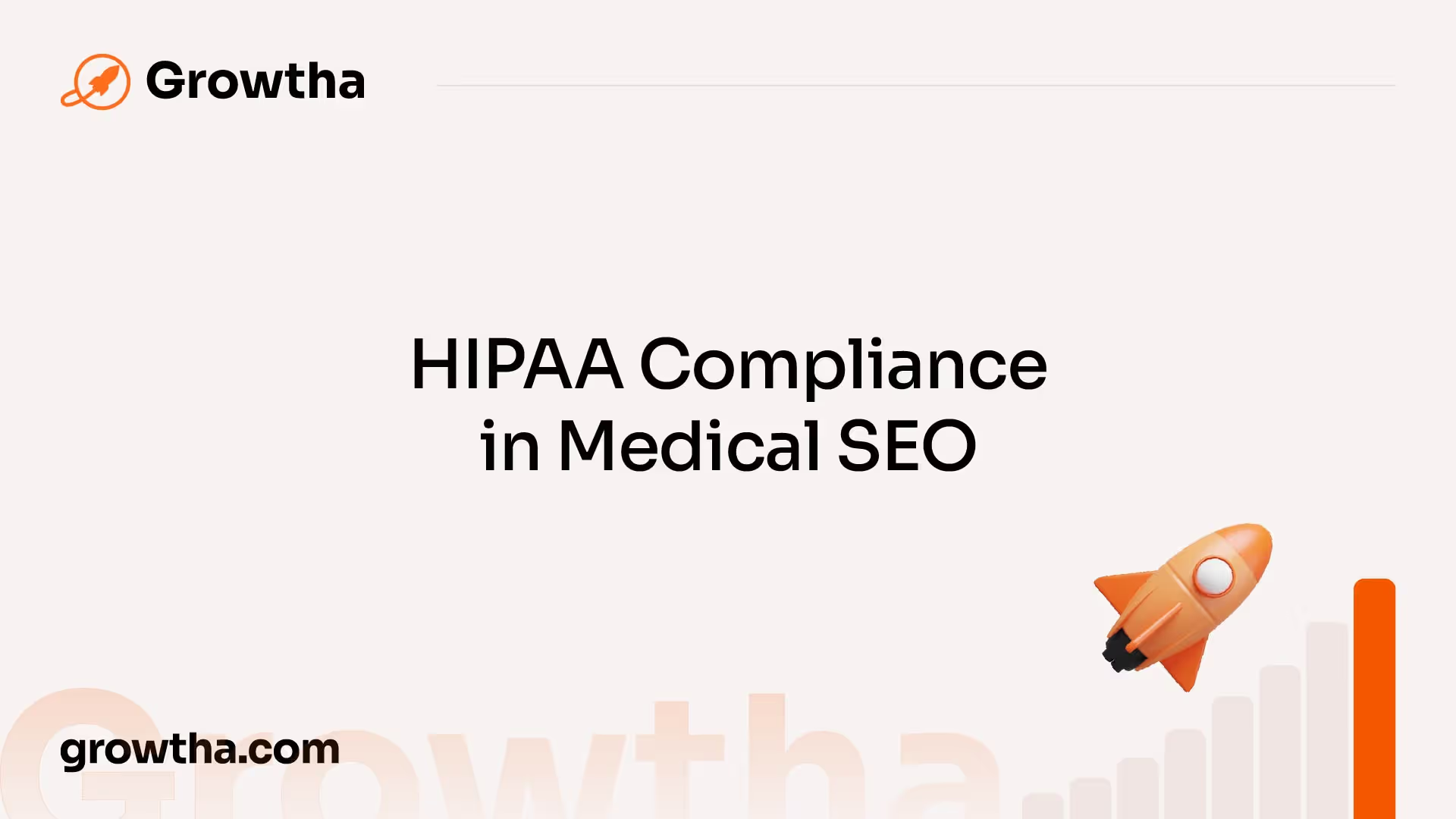Medical SEO Strategies for HIPAA Compliance
To effectively navigate the digital landscape and reach their target audience, healthcare providers must understand the importance of medical SEO and the role of keywords.


Medical SEO Strategies for HIPAA Compliance
Understanding Medical SEO
To effectively navigate the digital landscape and reach their target audience, healthcare providers must understand the importance of medical SEO and the role of keywords in healthcare SEO.
Importance of SEO in Healthcare
SEO, or Search Engine Optimization, plays a crucial role in the online visibility and success of medical practices. With the majority of individuals turning to search engines like Google or Bing to find healthcare information and providers, implementing SEO strategies is essential to ensure that medical practices do not miss out on potential patients.
By optimizing their websites, healthcare providers can improve their rankings on search engine results pages, making it more likely for potential patients to discover their services. Appearing at the top of search results increases the chances of attracting relevant traffic and generating leads. This heightened visibility helps healthcare providers establish their online presence, attract new patients, and ultimately grow their practice.
Role of Keywords in Healthcare SEO

Keywords play a crucial role in healthcare SEO. They are the terms or phrases that individuals enter into search engines when looking for specific information or services. By incorporating relevant keywords into their website content, healthcare providers can improve their chances of ranking higher in search results.
For instance, using location-specific keywords, such as "best family doctor in [city]" or "professional healthcare services in [city]," can help healthcare providers attract individuals seeking local care [1]. By understanding the search behavior and preferences of their target audience, healthcare providers can strategically select and optimize keywords to drive relevant traffic to their websites.
When creating content for healthcare SEO, it is vital to strike a balance between providing accurate, pertinent information and incorporating relevant keywords. Content development has become an integral aspect of healthcare marketing in the digital age, allowing healthcare professionals to position themselves as thought leaders and establish connections with patients.
By producing and disseminating accurate and valuable healthcare content, healthcare providers can not only educate their target audience but also build credibility and trust within the industry. This content can be in the form of blog posts, articles, videos, or infographics, helping healthcare providers connect with patients and establish themselves as trusted sources of information.
Understanding the importance of medical SEO and the role of keywords is crucial for healthcare providers looking to enhance their online presence, attract new patients, and provide valuable healthcare information to their target audience. By implementing effective SEO strategies and incorporating relevant keywords, healthcare providers can stay ahead of the game and thrive in the digital realm.
Implementing Medical SEO Strategies

When it comes to implementing effective medical SEO strategies, there are several key areas to focus on. These include content creation, technical SEO essentials, and local SEO for healthcare providers.
Content Creation for SEO
Content creation plays a crucial role in improving search engine rankings and attracting potential patients. It involves creating informative and engaging content that is optimized for relevant keywords. For medical practices, this can include service pages targeting keywords like "family medicine services in [your city]" or blog posts focusing on topics such as "healthy lifestyle tips for families in [your city]" [1].
By providing valuable and relevant content, medical practices can establish themselves as authoritative sources of information, which can lead to increased visibility and patient trust. It's important to regularly update and optimize content to reflect current healthcare trends and address patient needs.
Technical SEO Essentials
Technical SEO is the foundation of any successful SEO strategy. It involves optimizing website speed, creating a sitemap, implementing schema markup, and ensuring proper indexing and crawlability. These technical aspects are crucial for improving website performance, enhancing user experience, and enabling search engines to understand and rank webpages effectively. Having a well-structured and technically optimized website can positively impact search engine rankings and overall visibility.
Local SEO for Healthcare Providers

For healthcare providers, local SEO is a critical component of their digital marketing efforts. Local SEO focuses on optimizing a website to ensure that healthcare services are easily discoverable by potential patients in the local area. This is achieved by incorporating local keywords, acquiring backlinks from local businesses and directories, and maintaining website security [3].
By implementing local SEO strategies, healthcare providers can improve their online visibility among local audiences, connect with patients in their vicinity, and drive more targeted traffic to their websites. This can ultimately lead to increased patient inquiries and appointments.
To enhance local SEO efforts, healthcare providers should also consider the growing importance of voice search. Voice search usage is on the rise, particularly for health-related queries. Patients are increasingly relying on voice assistants like Siri, Alexa, and Google Assistant to seek medical advice and locate nearby healthcare services. Optimizing website content to cater to voice search queries can help healthcare providers capture this growing audience and improve their online presence.
By implementing a combination of effective content creation, technical SEO, and local SEO strategies, healthcare providers can stay ahead of the game and improve their online visibility, ultimately attracting more patients and growing their practices.
HIPAA Compliance in Medical SEO

In the realm of medical SEO, compliance with the Health Insurance Portability and Accountability Act (HIPAA) is of utmost importance. This section explores the key aspects of HIPAA regulations, the significance of the E-A-T principle in healthcare content, and the importance of privacy policies.
HIPAA Regulations Overview
HIPAA regulations set standards for the protection of individuals' private health information. Healthcare organizations must be cautious when implementing SEO strategies to ensure compliance with HIPAA. Personal health information, such as full names or dates, should not be included in content without proper consent to maintain patient confidentiality [3].
E-A-T Principle in Healthcare Content
The E-A-T principle, which stands for Expertise, Authoritativeness, and Trustworthiness, plays a crucial role in healthcare content creation for SEO. Adhering to this principle positively impacts SEO for healthcare websites by enhancing user engagement through informative and responsible content. Given the nature of healthcare, where accurate information is paramount, demonstrating expertise, authority, and trustworthiness is essential to attract and retain users [3].
Importance of Privacy Policies
Regularly updating privacy policies and disclaimers is crucial in medical SEO to enhance user engagement, trust, and credibility. Search engines favor trustworthy and credible websites, penalizing those that engage in unethical practices or violate regulations like HIPAA. By providing clear and comprehensive privacy policies, healthcare organizations demonstrate their commitment to protecting patient information, which in turn helps in building trust with both users and search engines [3].
Striking the right balance between SEO optimization and HIPAA compliance can be challenging. However, websites that provide accurate and responsible healthcare information while complying with HIPAA regulations are more likely to attract users seeking trustworthy information. This approach not only helps in avoiding penalties from legal authorities and search engines for misleading information or regulatory violations but also contributes to the overall credibility and reputation of the website [5].
By understanding the HIPAA regulations, embracing the E-A-T principle, and prioritizing privacy policies, healthcare organizations can navigate the complexities of medical SEO while ensuring compliance with HIPAA and maintaining the trust of their patients and users.
Balancing SEO and Data Protection

When it comes to medical SEO, striking a balance between optimizing for search engines and ensuring compliance with the Health Insurance Portability and Accountability Act (HIPAA) is of utmost importance. This section explores the challenges of HIPAA compliance in SEO, the approach taken by Mayo Clinic, and the future of SEO in the healthcare industry.
Challenges of HIPAA Compliance
HIPAA compliance presents unique challenges when it comes to implementing SEO strategies for medical websites. Non-compliance can have far-reaching consequences, both legally and reputationally, extending beyond mere regulatory missteps [5].
One of the main challenges is maintaining patient privacy and data protection. Medical websites often handle sensitive information, and ensuring the confidentiality and security of this data is paramount. Balancing the need to optimize website content for search engines while safeguarding patient privacy can be a delicate task.
The rise of telemedicine and virtual consultations further complicates HIPAA-compliant SEO. As more patient data is shared online, it is crucial to find the right balance between optimization and data protection. Implementing robust security measures, such as encrypting patient data and using secure communication channels, becomes essential to maintain HIPAA compliance.
Mayo Clinic's Approach to SEO
Mayo Clinic, renowned for its patient-centered approach, provides a noteworthy example of how user-focused SEO can coexist with stringent data protection measures. Their website offers a plethora of patient resources, interactive tools, and comprehensive health guides in a secure digital environment.
By prioritizing patient trust and confidentiality, Mayo Clinic demonstrates how it is possible to optimize content for search engines while adhering to HIPAA regulations. They achieve this by implementing robust security protocols, obtaining patient consent when necessary, and clearly communicating their commitment to privacy and data protection.
Future of SEO in Healthcare
The future of SEO in the healthcare industry holds both challenges and opportunities. As technology continues to advance, AI-driven solutions are gaining prominence. Personalized patient care through chatbots, algorithms for predicting health concerns, and other AI applications offer immense potential in the medical sector [5].
However, striking the right balance between personalization and data protection will be crucial. AI-driven solutions must comply with HIPAA regulations and ensure that patient data remains secure and confidential. Adapting SEO strategies to this evolving landscape requires constant vigilance and a steadfast commitment to prioritizing patient trust.
In conclusion, achieving a harmonious blend of SEO and data protection in the medical field requires careful consideration and adherence to HIPAA regulations. Organizations like Mayo Clinic exemplify how a patient-centered approach can be successfully combined with effective SEO practices. As the healthcare industry continues to evolve, maintaining HIPAA compliance while harnessing the potential of emerging technologies will be key to success.
Read about: Medical Entrepreneurship Conferences
Local SEO for Healthcare Providers
Local SEO plays a crucial role in the digital marketing strategy of healthcare providers. It focuses on optimizing online presence to ensure that their services are easily discoverable by potential patients in their vicinity. By implementing effective local SEO strategies, healthcare providers can connect those in need with the right care in their area.
Benefits of Local SEO
The benefits of local SEO for healthcare providers are significant. It allows them to target a specific geographic area, ensuring that their services are visible to individuals who are actively seeking local healthcare options. Some key benefits of local SEO include:
- Increased visibility: By optimizing for local search, healthcare providers can appear in the local map pack and organic search results, improving their visibility to potential patients.
- Targeted audience: Local SEO helps healthcare providers reach their target audience more effectively, connecting them with patients who are specifically looking for healthcare services in their area.
- Better conversion rates: When potential patients find local healthcare providers in their search results, they are more likely to convert into actual patients, leading to improved conversion rates.
- Enhanced reputation: Local SEO allows healthcare providers to showcase positive patient reviews and ratings, building trust and credibility within the local community.
Voice Search in Healthcare
Voice search is becoming increasingly popular, with patients relying on voice assistants like Siri, Alexa, and Google Assistant to seek medical advice and locate nearby healthcare services. As voice search usage grows, it's essential for healthcare providers to optimize their online presence to cater to this trend.
To tap into the potential of voice search, healthcare providers can:
- Optimize for conversational keywords: Voice searches tend to be more conversational in nature. By incorporating long-tail keywords and natural language into their content, healthcare providers can increase their chances of appearing in voice search results.
- Provide concise and accurate information: Voice searches often seek quick answers to specific questions. Healthcare providers should ensure that their websites provide clear and concise information that directly addresses commonly asked health-related queries.
Mobile Optimization for SEO
A seamless mobile experience is crucial in healthcare SEO. Patients increasingly rely on their mobile devices to access health information quickly and efficiently. From an SEO perspective, search engines like Google prioritize mobile-optimized sites in their rankings, recognizing the importance of providing a positive user experience on mobile devices.
To optimize for mobile:
- Ensure responsive design: Healthcare websites should be designed to adapt to different screen sizes and resolutions, providing a seamless experience across various mobile devices.
- Optimize page load speed: Mobile users expect fast-loading pages. Healthcare providers should optimize their website's performance to deliver a smooth browsing experience on mobile devices.
- Simplify navigation: Mobile users appreciate intuitive and easy-to-navigate websites. Clear and concise menus and well-organized content can contribute to a positive user experience.
By prioritizing local SEO, optimizing for voice search, and ensuring mobile optimization, healthcare providers can enhance their online presence, connect with potential patients in their area, and provide a positive user experience that aligns with modern search trends.
References
[1]: https://seo.ai/blog/seo-for-medical-practices
[2]: https://webserv.io/resources/blog/healthcare-content-creation/
[3]: https://blog.tbhcreative.com/seo-for-healthcare-websites/
[4]: https://growthnatives.com/blogs/digital-marketing/mastering-healthcare-seo-strategies-to-elevate-your-online-presence/
[5]: https://www.winsavvy.com/hipaa-compliance-in-seo-for-medical-websites/







